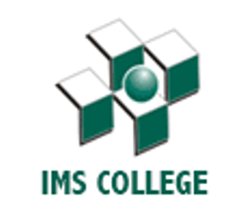Educational Aims of the Programme
The programme has been devised in accordance with the University’s graduate attributes of programmes of study as set out in UPR TL03.
This programme aims to:
- deliver a contemporary, critical, integrated and applied programme of study at postgraduate level within the area of Business and Management;
- equip students with the analytical and personal skills to deal with complex issues systematically, creatively, and responsibly, and make sound judgements in the absence of complete data;
- offer opportunities for students to demonstrate leadership and entrepreneurship in tackling and solving problems, and to act autonomously in planning and implementing tasks at a professional or equivalent level;
- provide theoretical grounding in approaches to research, supporting a practical understanding of how established research methods can be applied to develop and interpret knowledge of direct relevance to the challenges faced by both multinational corporations and SMEs.
Intended Learning OutcomesThe programme provides opportunities for students to develop and demonstrate knowledge and understanding, skills and other attributes in the following areas. The programme outcomes are referenced the Frameworks for Higher Education Qualifications of UK Degree-Awarding Bodies (2014) and relate to the typical student.Additionally, the SEEC Credit Level Descriptors for Further and Higher Education (2016) have been used as a guiding framework for curriculum design.
Knowledge and Understanding Practical Skills A1. a broad range of organisations and the external context within which they operate C1. be creative and entrepreneurial and manage the creative process in self and others A2. organisations and the inter-relatedness of internal aspects C2. conduct research into business issues both individually and as a team A3. how organisations may innovate, create value, manage financial and operational risk and strategically respond to forces and changes in the environment C3. use information and knowledge effectively A4. the pervasive debates, issues and new insights affecting organisations C4. make effective use of numeracy skills and quantitative skills A5. theories of leadership and strategy, their relationship to each other, and their influence on the rganization C5. make effective use of ICT / digital media A6. different research approaches, business research methods and analytical tools for investigation of business issues C6. deploy operations management skills effectively Intellectual Skills Transferable Skills B1. the ability to critically analyse relevant academic management and leadership theories and apply models, tools and techniques for the critical evaluation of real business issues D1. communicate effectively both orally and in writing and using a range of digital media B2. Reflective analysis and the ability to evaluate personal skills and practice D2. demonstrate high personal effectiveness including self-awareness, reflective practice and self-management; sensitivity to diversity in people and different situations and ability to continue learning B3. recognise and address ethical dilemmas and CSR issues, applying ethical and organizational values to situations and choices D3. demonstrate good business ethics and value management B4. advance skills of research, analysis and interpretation appropriate for identifying business opportunities and challenges D4. manage effective performance within a team environment and be able to recognise and utilize individual contributions in group processes.



